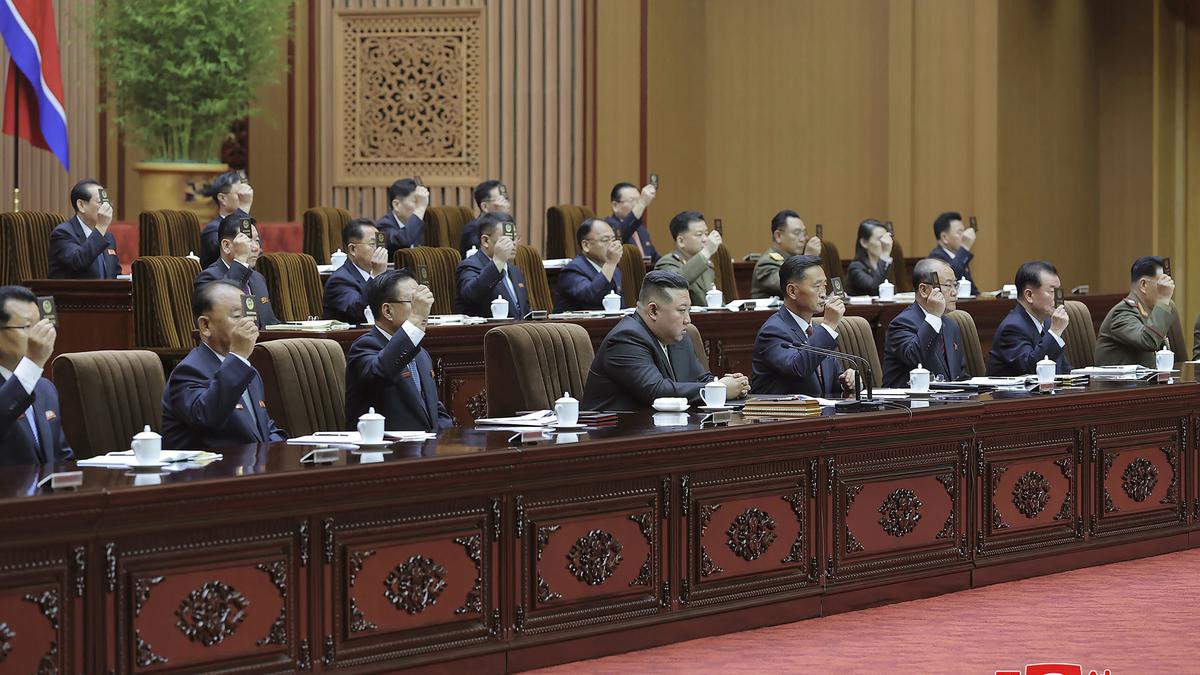
North Korean leader urges greater nuclear weapons production in response to a 'new Cold War'
The Hindu
North Korean leader Kim Jong Un called for an exponential increase in production of nuclear weapons and for his country to play a larger role in a coalition of nations confronting the United States in a “new Cold War,” state media said.
North Korean leader Kim Jong Un called for an exponential increase in production of nuclear weapons and for his country to play a larger role in a coalition of nations confronting the United States in a “new Cold War,” state media said on September 28.
The Korean Central News Agency (KCNA) said Kim made the comments during a two-day session of the country's Parliament which amended the constitution to include his policy of expanding the country's nuclear weapons programme.
The Supreme People’s Assembly's session on Tuesday and Wednesday came after Kim travelled to Russia's Far East this month to meet with Russian President Vladimir Putin and visit military and technology sites.
The trip sparked Western concerns about a possible arms alliance in which North Korea would supply Mr. Putin with badly needed munitions to fuel his war on Ukraine in exchange for economic aid and advanced Russian technologies to enhance North Korea's nuclear and missile systems.
As North Korea slowly ends its pandemic lockdown, Kim has been actively boosting his partnerships with Moscow and Beijing as he attempts to break out of diplomatic isolation and join a united front against Washington. He has described the world as entering a “new Cold War” and that North Korea should advance its nuclear capabilities in response.
KCNA’s reports on Kim’s comments came a day after North Korea confirmed the release of U.S. Army Private Travis King, who is now being flown back to America, two months after he sprinted across the heavily fortified border into the North.
King’s relatively swift expulsion defied speculation that North Korea might drag out his detention to squeeze concessions from the United States, and possibly reflected the North's disinterest in diplomacy with Washington.











